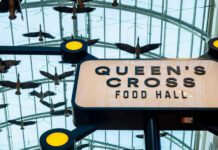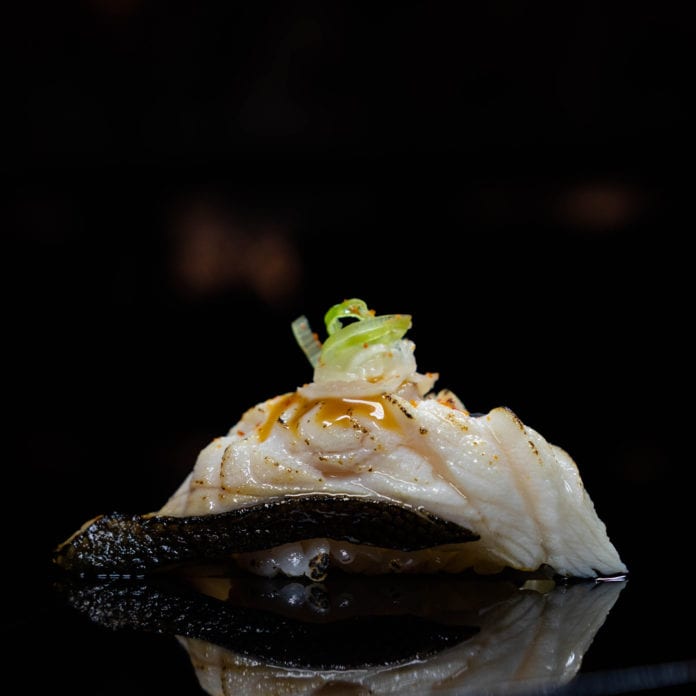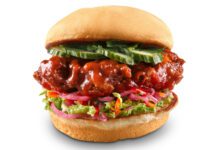When chef Dai Fukasaku opened his restaurant, Fukasaku, in 2013, his goal was to serve only locally caught seafood in his sushi and sashimi menu items. When he realized this would be possible (thanks to his close connections with the Prince Rupert fishing industry) he decided to take things a step further and feature only sustainably sourced, locally caught seafood.
He reached out to Vancouver-based Ocean Wise for information on the varieties of sustainable seafood he could feature on his menu. Since then, his business has thrived. He makes all of his menu items by hand and works long hours, but derives a lot of satisfaction from his work, knowing he is doing what he loves and making a difference at the same time.
1. Why did you decide to use only sustainable types of seafood?
After living in Prince Rupert for a few years and working at a sushi restaurant in town, I was acquainted with local fishermen/fisheries and became familiar with types of seafood commercially caught in the area. I was shocked and disappointed when I learned most of the fish caught in this area was sent south right away. During salmon-fishing season, I saw Atlantic salmon, which was sent from the south, at the local grocery store instead of locally caught Sockeye or Chinook salmon. It was wrong and someone had to promote the beautiful local seafood to our community and visitors.
At first, I wanted to see if I could run a sushi restaurant exclusively featuring local seafood. The answer was yes. Then, I wanted to see if I could do it with sustainably caught, local seafood. I contacted Ocean Wise and sent them my menu, along with a list of seafood describing where and how they were caught. They said all the local seafood on the list was approved by Ocean Wise. This is my first business — I wanted to make sure I had a unique feature that would separate my business from other [sushi] establishments. I also wanted to make sure the business would contribute to local economy, tourism and the sustainability of the ocean.
2. Does sustainable seafood make great sushi?
Yes, for sure. We have lots of tourists visiting our restaurant from all over the world who wouldn’t [previously] know about our concept of sustainability and locality. We get lots of compliments from them; people have left a comment like, “it was the best sushi I’ve ever had,” or “everything is as fresh as can be.” Then we explain how everything is caught within the province in a sustainable way.
What makes great sushi/sashimi, in my opinion, is a collaboration between [West-Coast] fishermen, the fishery itself and the chef. I’m fortunate enough to have a close relationship with fishermen and the fishery — and that’s how I get the best-quality seafood all the time. My responsibility as a chef, when I am given such high-quality seafood, is to make sure I pay the upmost respect to it — I store, portion and slice it properly. This way, the seafood can speak for itself.
3. What can other sushi and sashimi-focused operators do to make their menus more sustainable?
Following the guidelines from organizations such as Ocean Wise and SeaChoice is a great place to start — they’re very supportive.
4. Have you had to alter any specific sushi methods or recipes to ensure a sustainable menu item?
Fortunately, this hasn’t happened in our restaurant yet.
5. What have you had to do differently to ensure a sustainable menu?
Ocean Wise sends me seafood recommendation updates on a regular basis; this way, I can ensure I’m on the right track. I’m picky about suppliers and fishermen, but they appreciate my effort and pickiness.
6. Prince Rupert is pretty far from any large urban centre. Has that had a positive or negative affect on maintaining a sustainable menu?
That’s a tough question. When we first opened six years ago, the concept of sustainable local seafood wasn’t as popular. Luckily, people enjoy the quality of the sushi dishes we offer. Now, lots of locals come to our restaurant to show off local sustainable seafood when they have guests visiting from out of town. I love how the community appreciates our food and supports our business.
7. What’s next for Fukasaku?
We have big plans. We’re building a community marketplace where I can connect local fishermen to consumers and visitors to feature sustainable seafood. I also want to expand this concept to local farmers in the future. I want to travel during slow season to collaborate with other chefs who have the same concept — to learn more and inspire myself. I also lend my support to the independence of young fishermen and will continue to work with the British Columbia Young Fishermen’s Network.





















